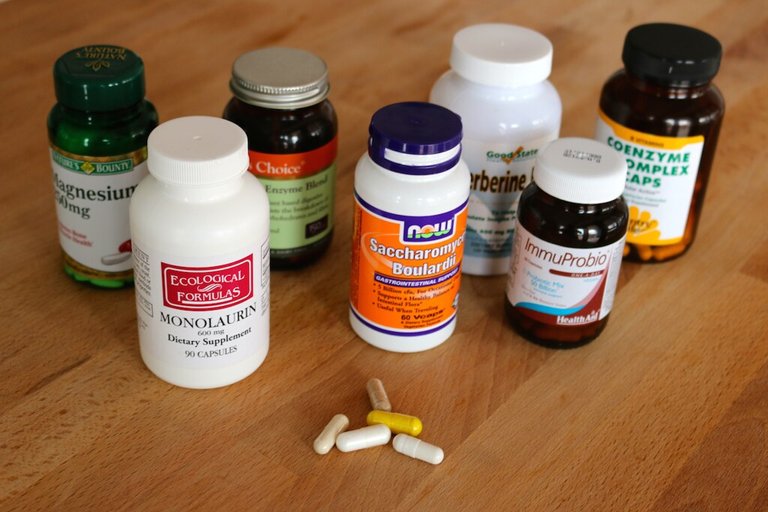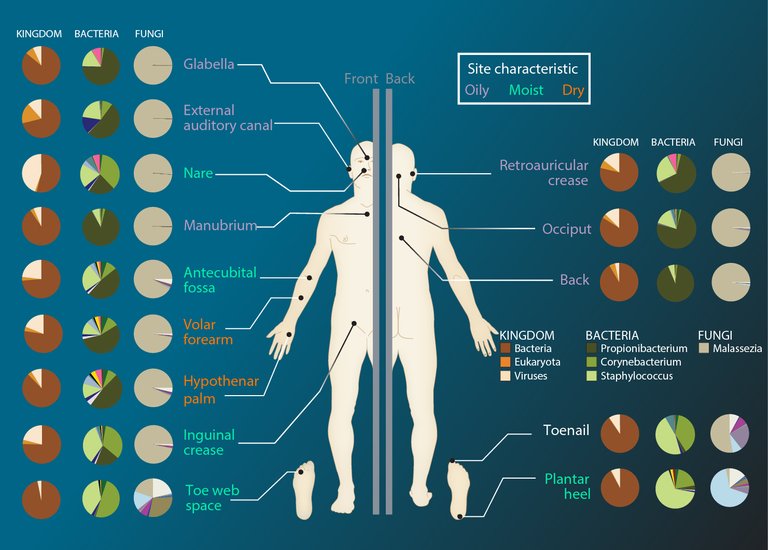For many years, bacteria have had a bad reputation. They've been linked to numerous health conditions, and the mere mention of the word 'bacteria' often conjures thoughts of disease. However, recent news and publications have shed light on their potential health benefits. Studies have revealed that the bacteria residing in our guts play a crucial role in our overall well-being. Consequently, we've seen a surge in the consumption of probiotics aimed at improving gut microbiota.
You must have heard of probiotics, because I have heard of them. If you have or haven't, let's look at understanding what they are and if they truly work in keep our gut microbiota and make a difference after taking them, or they are just some things that have no significant effect.
Humans are made up of more microorganisms than cells, so we house a lot of this microscopic organisms and we refer to them as our microbiome. Only about 43% of the cells in our body are human, so we are more foreign than human, and these microbes help support our immune system, neutralize toxins, digest food, and help to provide nutrients that our cells can't produce by themselves. The majority of these microbes are the gut microbes and they do the previously mentioned things including farting.
An unhealthy microbiome has been linked to a wide array of diseases and conditions, spanning from autism spectrum disorders, diabetes, and neurological conditions to depression and obesity. Specific bacteria present in an individual can even indicate unique attributes, such as higher levels of lactobacillus correlating with lower bad cholesterol, thereby reducing the risk of strokes and heart attacks.
Microbial diversity in humans is very important in helping to protect to body from single pathogenic organisms, and studies have shown that lack of microbial diversity can be linked to different types of diseases and conditions such as allergies, cancer, muscular dystrophy, problems in blood coagulation, and other conditions. The diversity of gut microbes has also been shown to affect our behavior as study shows that people who are more sociable has a more diversed microbiome, compared to those that aren't
Remarkably, the gut contains a vast number of neurons, second only to the brain itself. Gut microbes are responsible for producing numerous neurotransmitters that impact mood, memory, and various brain functions. These microbes also play a pivotal role in the mental development of individuals. For instance, research has shown that when gut microbes from depressed humans were introduced into mice, the mice began exhibiting depressive behavior, underscoring the profound connection between our gut microbiome and both mental and physical health.
In other to protect these gut microbiome is where probiotics supposedly comes in. With probiotics, it is supposed to work by maintaining the ovarall health and composition of good bacteria. Antibiotics are a big problem for our gut microbiomes, as they are not selective about the bacteria they kill, and taking probiotics seem to reduce antibiotic associated diarrhea. Probiotics supplements are generally assumed to be safe for healthy people but they do not usually undergo lots of rigorous testing like other drugs. While probiotics work, there is still a lot to
In other to improve our gut microbiome, eating food high in fiber can be beneficial for our gut bacteria. Probiotics are good but humans have a variety of gut bacteria, and what is a microfloral for one might be regarded as foreign for another person.
The perception of bacteria has evolved from being solely associated with disease to being recognized as a vital component of our health. Probiotics offer a potential avenue for improving gut microbiota, with emerging evidence of their positive impact. However, it's essential to continue researching and understanding these complex microbial communities within us for the benefit of our overall well-being
Reference
https://www.ncbi.nlm.nih.gov/pmc/articles/PMC8347163/
https://www.ncbi.nlm.nih.gov/pmc/articles/PMC8401746/
https://www.ncbi.nlm.nih.gov/pmc/articles/PMC7162693/
https://www.ncbi.nlm.nih.gov/pmc/articles/PMC8835211/
https://ods.od.nih.gov/factsheets/Probiotics-HealthProfessional/
https://www.ncbi.nlm.nih.gov/pmc/articles/PMC4045285/
https://www.ncbi.nlm.nih.gov/pmc/articles/PMC7510518/
https://www.thelancet.com/journals/ebiom/article/PIIS2352-3964(23)00092-0/fulltext


